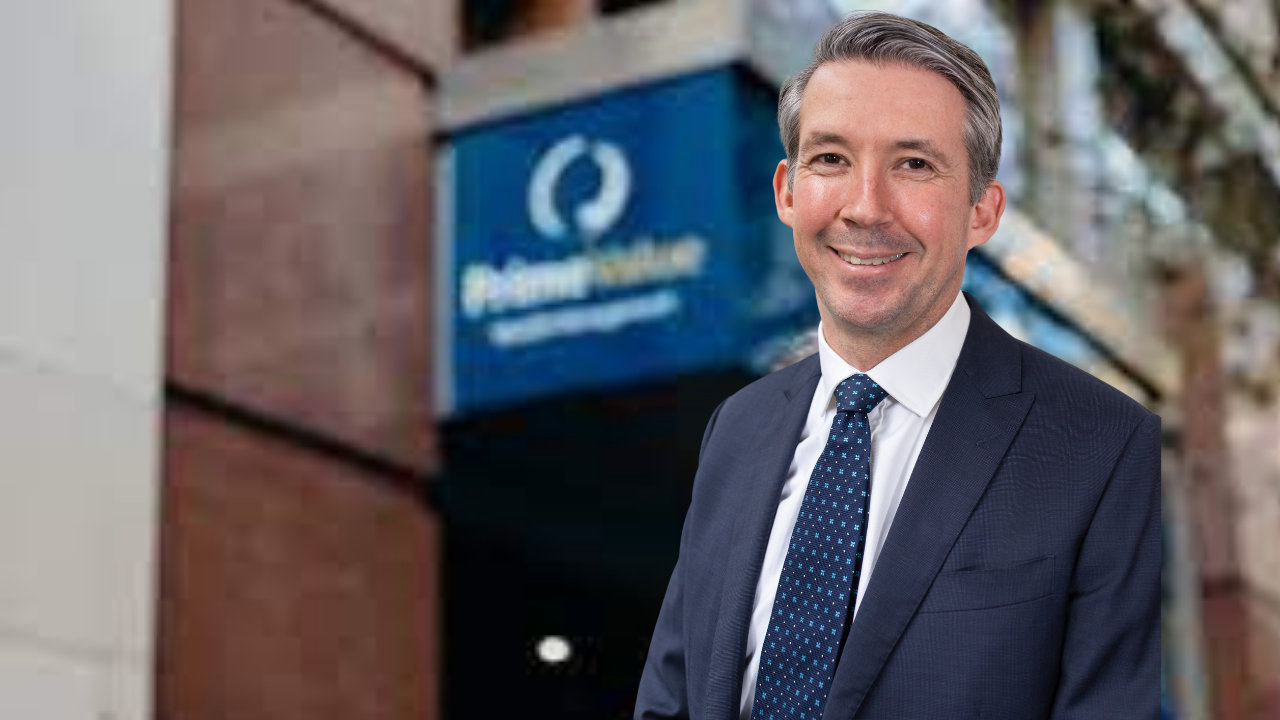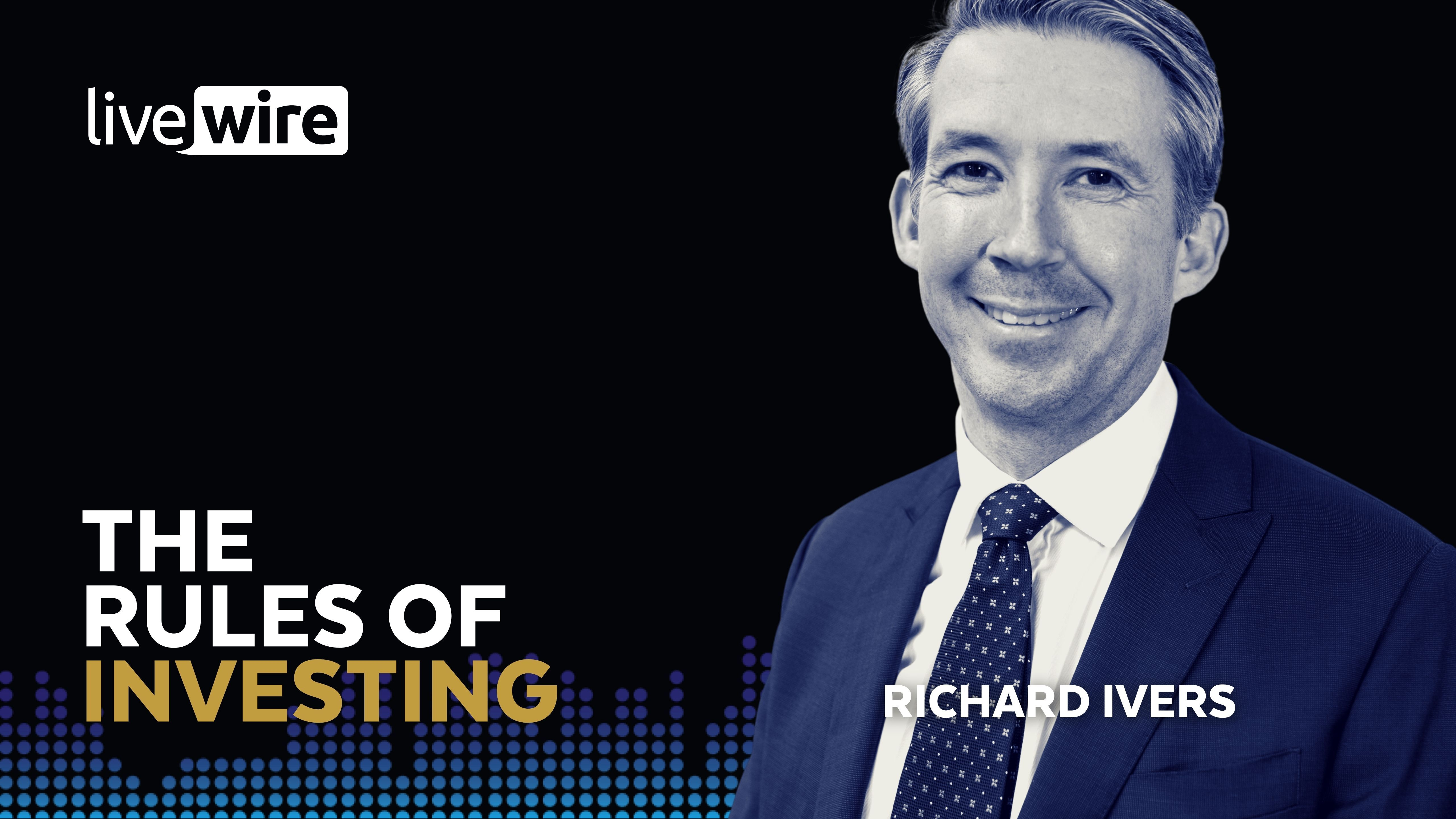Big opportunities in small companies with Richard Ivers
The investment world is full of noise, but that doesn't have to impact your decisions. If you can find quality companies with earnings visibility, you have a solid base to start from, says Richard Ivers from Prime Value Asset Management.
"We're looking for businesses that can grow over the long term but we have a valuation overlay to ensure that we're buying them at a reasonable price."
Understanding what makes businesses tick is at the core of Ivers' philosophy, having spent time working in strategy and consulting for finance and tech firms across Europe.
In this episode of The Rules of Investing, my colleague Patrick Poke spoke to Ivers about the fund's investment strategy; a retailer that stands out from the pack; and a listed funds management firm that's well and truly on the rise.
.png)
Richard Ivers - Portfolio manager (equities) at Prime Value Asset Management
Ivers started his career on the sell-side, covering media stocks for a broker - back when media stocks were a big deal, and NewsCorp (ASX: NWS) was one of Australia's largest companies. After being offered a major promotion though, he arrived at a "fork in the road."
"I had to make the decision whether to move to Sydney and become the head of media analyst for a stockbroking firm... work hundred-hour weeks and spend all of my 20s inside an office, or to go overseas and do some travelling, which is what I'd always wanted to do," Ivers says.
What was initially planned as a year-long trip ended up as an eight-year adventure across London and Amsterdam, where he worked, met his wife and did an MBA. This turned out to be a masterstroke as it gave Ivers a unique insight into what drives a company's success.
"I worked within companies throughout that time. That was interesting because, when you work in finance, the way we model companies in a spreadsheet is that they grow mathematically, whereas in the real world it is very different to that. Businesses are organic creatures, and they're driven by things such as culture and leadership and salespeople."
The origins of Prime Value
Prime Value was founded 20 years ago and is a multi-asset manager across equities, property, income and alternatives. Despite what the name may suggest, it is not a traditional value manager.
"When the founders came up with the name Prime Value, it was really about saying that the assets in which we invest have a fundamental basis and a value on which we purchased them, rather than that we are a value-type manager. We're style agnostic, but we have a GARP bias (Growth At a Reasonable Price). We're looking for businesses that can grow over the long term, but we have a valuation overlay to ensure that we're buying them at a reasonable price," Ivers says.
Unpacking the investment process a bit further, he highlights those "businesses with a long runway for growth and earnings that are visible," and the unique characteristics of small-caps that makes this possible.
"One of the great things about small-caps is you can find very high quality businesses that are often valued as mediocre businesses. Over time, the market starts to realise and appreciate the earnings power of the business, you get the earnings growth, but you also get that valuation re-rating as well, a double kicker to the share price, which really drives spectacular returns and is one of the great opportunities in small-caps," Ivers says.
Underpinning all of these investments is the notion of quality. Two of his key indicators of quality are:
- Having a high degree of certainty as to where the earnings of a business will be in three to five years. This helps to withstand all the pressures and issues that may come over that period of time.
- The pricing power of a business. If a business has the ability to put through pricing increases without significantly impacting volumes, that's normally a sign that has a very strong competitive position.
Waiting for the value to increase, rather than price to drop
Many investors like to keep a watch list of stocks they'd buy if the price were to drop. But Richard has a different take on this - sometimes it's about the value increasing, rather than the price to drop.
He shared the example of City Chic (ASX:CCX), or Specialty Fashion Group as it was formerly known. Before 2018, the company was struggling under the weight of underperforming legacy brands. However, City Chic, its crown jewel, was highly profitable and growing fast.
Then the company announced a restructure, selling all of its brands bar City Chic to Noni B (now renamed Mosaic Brands), which separated City Chic from the rest of the assets. "All of a sudden you had the core, the gem within the portfolio standing alone. So you could buy that business without all of the other troubled assets," says Ivers.
"We built a model, spoke to management and within a couple of days, we were buying that stock at about 70 cents. Now it's over $5."
Prime Value still owns it, given it is "growing organically" and will certainly be a beneficiary of the reopening trade. The company is also strong across digital channels, with around 70% of sales coming from online stores.
The role of risk management within the strategy
Just as knowing what companies to pick is important, so is knowing which companies to exclude. In alignment with Prime Value's emphasis on "earnings visibility" when choosing the right company, the fund manager has a stringent process of rejecting companies based on uncertainty and lack of quality.
"From the very start, we screen out a lot of companies. We don't invest in mining companies because they're largely driven by commodity prices, which are hard to forecast....visibility of earnings is very difficult with mining companies...We don't often invest in loss-making companies also. Looking at the business level, we look at (if they have a) single point of reliance from a supplier or a customer side, but the probably the most important element of risk is really about the quality of the business," Ivers says.
In all, he uses eight screens for stock holdings in order to determine whether they have the quality to make it into the portfolio.
A "beta" way to get market exposure
Funds management is a very competitive industry, and even more so in recent years as we've witnessed the rise of passive management, and more recently, discount online brokers. But for managers that can produce good returns and market themselves well, the rewards can be great.
Funds management companies benefit from excellent economics. They require very little additional capital to grow, and due to the high portion of fixed costs, they have significant operating leverage. They also offer a lot of 'beta' - or market exposure - allowing conservative managers to keep up with the index in a rising market.
Pinnacle Investments (ASX: PNI), one of the fund's key holdings, has climbed more than 150% over the past 12 months and is currently the best performing non-resources stock in the ASX 200 over that period.
Ivers highlights two key drivers of a fund management business:
- You need to find a good fund manager that can generate good returns for investors. Pinnacle has 16 affiliates that are outstanding fund managers, ticking that box. Having a wide range of managers with different styles also helps to diversify the risk of fund underperformance.
- The second part is distribution. There needs to be a team that can effectively sell the product or attract funds under management to grow the business and generate profits. The economics of Pinnacle is also very strong in this respect.
One stock to trust
Finally, Poke asked what stock Ivers would bet his life savings on if markets were to close tomorrow? Playing to his strengths in the smaller end of the market and only covered by a single analyst at the moment, he picks Equity Trustees (ASX:EQT)
"It's got a market cap around $600 million and was founded in 1888. It's got a history of over 130 years, which gives you a perspective on the sustainability of the business. One part of the business is as a trustee for corporate and super funds, and that's a very, very sticky part of the business. They're very rarely changed. And then on the other side, they do often perpetual trusts whereby they look after and distribute that money in a perpetual nature," says Ivers.
From this, he anticipates a very long-dated revenue stream that grows over time if markets continue to rise. Ivers also likes the firm's high-quality income stream that is visible for prospective investors.
Through the podcast, Ivers also offers his investment theses on News Corp (ASX: NWS), Southern Cross Broadcasting (ASX: SXL) and United Malt Group (ASX: UMG), as well as his view on the reopening trade.
Want to listen to the full interview? Access it in the wire below:

The Prime Value difference
Prime Value Asset Management is a multi-award winning, boutique Australian investment manager with an impressive history of building wealth with investors since 1998. To find out more about the Prime Value Emerging Opportunities Fund click here or the 'CONTACT' button below.
1 topic
9 stocks mentioned
2 contributors mentioned


